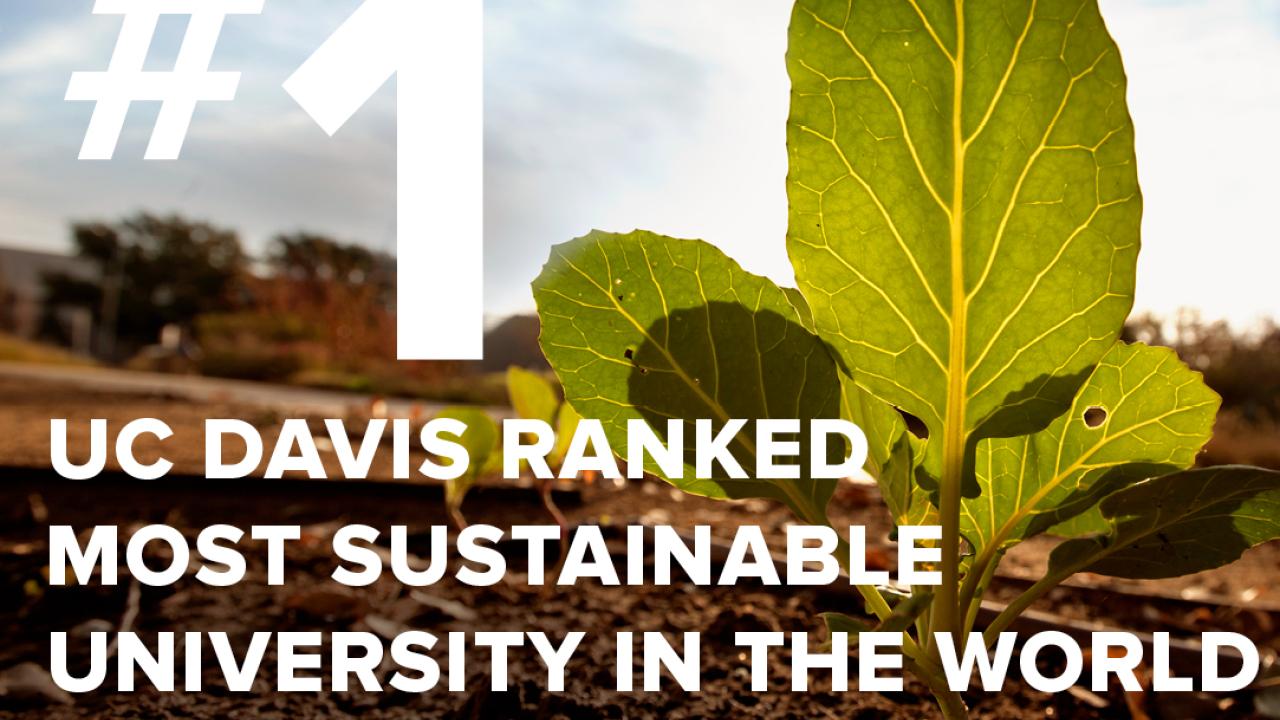
A Message from the Dean
Sustainability is at the heart of what we do
What a wild and wet start to 2017! After years of drought, all the rain and snow of recent weeks is certainly a welcome sight.
We recognize that in California we can quickly move from one extreme of weather to another. Helping our communities prepare for uncertain water availability underlies significant research here in the college. The UC Davis Sustainable Wine and Food Processing Center is a case in point. The center, located within the Robert Mondavi Institute for Wine and Food Science, is charged with developing innovative solutions for wine, food, and beverage production. That means using less water, reducing greenhouse gas emissions, and adopting renewable energy and greener cleaning and processing chemistry. Thanks to our stellar faculty, staff, and industry partners, we are making tremendous strides in this area.
Adjacent to the Jess S. Jackson Sustainable Winery Building at the Robert Mondavi Institute for Wine and Food Science complex, our 40,000-gallon rainwater capture tanks were ready when Mother Nature let loose with sustained downpours in early January. Two companies recently donated, designed, and installed a reverse osmosis system to deliver filtered rainwater for use in our winery. We extend our heartfelt gratitude to GE Water and Process Technologies and to Wine Secrets for their partnership.
It’s one thing to talk about sustainability. It’s quite another to have the capability and commitment to create solutions for the many sustainability challenges we face as a society. And that’s where we shine. UC Davis was recently named the most sustainable university in the world in a 2016 assessment of 516 colleges and universities in 74 countries. Research and education on sustainability were among the criteria in this annual GreenMetric ranking conducted by the University of Indonesia.
Sustainability is a theme that connects much of our work in the agricultural, environmental, and human sciences. For instance, a team of researchers that includes animal science professor Juan Medrano is working to develop an easy, inexpensive genetic test to help ranchers improve cattle distribution by breeding hill-climbing cows. It is good for livestock production and the environment when cattle consume forage more evenly on California’s 38 million acres of rangeland.
For farming and ranching to remain sustainable they must be economically viable. That’s why our researchers address a wide range of agricultural issues, such as the labor challenges created by worker shortages and rising costs. We also are developing new technologies, breeding improved cultivars, and finding environmentally friendly ways to fight pests.
Sustainability has many facets. The Center for Regional Change, with support from the Resource Legacy Fund, is working with community groups to analyze the prospects for improving water systems in disadvantaged unincorporated communities in the San Joaquin Valley. The goal is to improve access to clean, affordable, and abundant drinking water, as well as equitable access to high-quality waste water and sanitation infrastructure.
We know there is a growing demand for graduates with a grasp of sustainability issues in urban and regional development. That’s why our faculty created the sustainable environmental design major a few years ago. From a handful of undergraduate students in 2015, the major has grown to more than 90 students today. Graduates with a degree in Sustainable Environmental Design will become the community builders of tomorrow, helping to create physical landscapes that are environmentally safe and resource-efficient.
Our farmers, environmentalists, ranchers, scientists, and students all grapple with how best to support and sustain farmlands, forests, wetlands, ranchlands, and urban and rural spaces. We may have different demands that require a diverse set of solutions to guide change, but I believe we are all interconnected through our common desire to protect and grow within our communities. We need each other’s support to move forward and thrive.
The year ahead holds much promise and I believe you will be hearing more about our work on sustainability. That’s good news for UC Davis, good news for California, and good news for our planet. Wishing you all the best as 2017 unfolds.